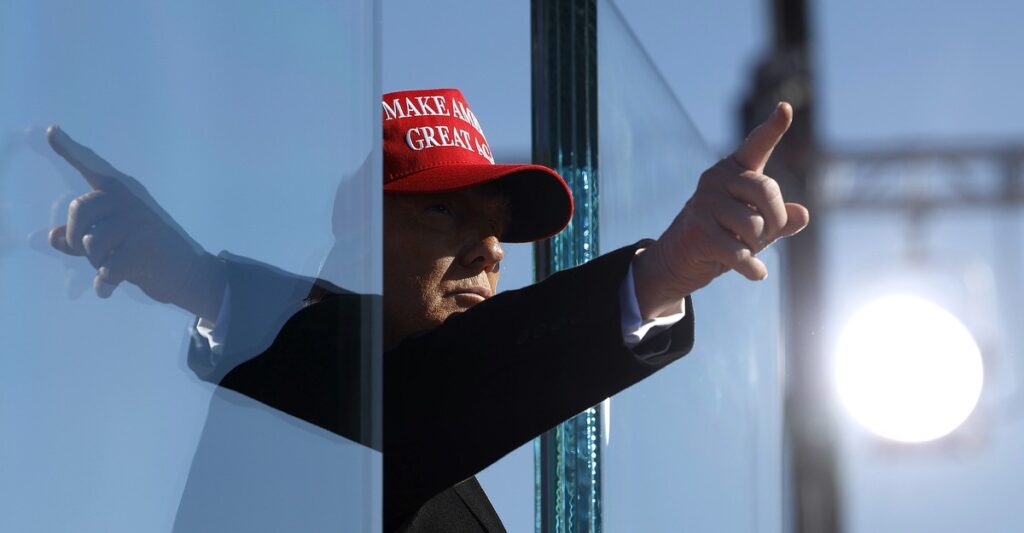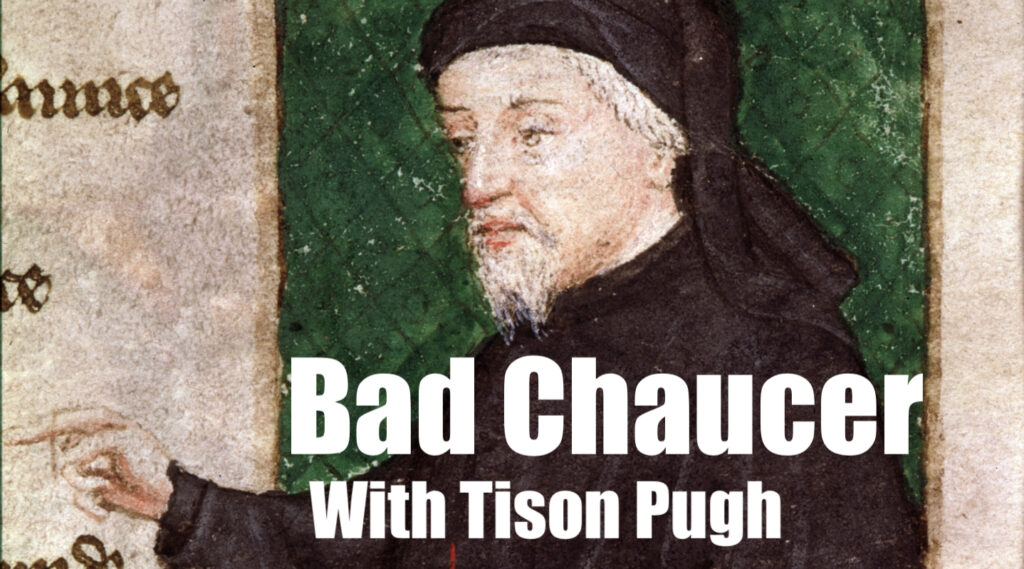He says he wants to give power back to the states, but has also signaled his intention to align American schools with his own cultural agenda.
This is an edition of The Atlantic Daily, a newsletter that guides you through the biggest stories of the day, helps you discover new ideas, and recommends the best in culture. Sign up for it here.
Among Donald Trump’s many campaign-trail promises was his threat to dismantle the Department of Education, which he has claimed without basis is filled with “radicals, zealots, and Marxists.” But the president-elect seems to want to have it both ways: In trying to hamstring the federal agency, Trump says he will give power back to the states. But he has also said he is prepared to use executive power to crack down on schools with policies that don’t align with his culture-war agenda.
Trump proposed dismantling or dramatically cutting the DOE during his 2016 run, but he didn’t follow through while in office. This time, even if he does stick with it, he’s not likely to succeed: Because the department was elevated to a Cabinet-level agency by an act of Congress under President Jimmy Carter, shutting it down would likewise require an act of Congress. Passing such a law is a probable nonstarter even though Republicans will soon control the House and Senate. It would require a 60 percent vote in the Senate (at least as long as the filibuster is in place), and some Republicans would likely not support cutting the DOE, because it could be unpopular with their constituents. Red, rural, low-income areas are among the parts of the country whose school districts receive the most Title I supplemental funding from the agency. Although the DOE has found its place in the crosshairs of the culture wars, its daily function largely involves distributing funds to K–12 schools and administering federal loan programs for college students—not getting involved in the curriculum issues that inflame the political right.
Whether he follows through on his DOE threat or not, Trump has other channels through which to alter America’s schools. Trump’s statements on the campaign trail suggest that he’s likely to use his executive power to roll back the changes President Joe Biden made to Title IX, which related in part to protections for LGBTQ students and rules for how colleges respond to allegations of sexual violence on campus (these changes are currently blocked in some states). Trump’s platform also states that he “will sign an executive order instructing every federal agency, including the Department of Education, to cease all programs that promote the concept of sex and gender transition, at any age,” and he has signaled that he may threaten to withhold federal funds from schools that don’t fall in line. Trump and his team may also push to direct public money to parents with students in private and religious K–12 schools through a system known as “school choice” vouchers, which has gained political momentum after sustained attacks on public schools from Republican politicians (vouchers were a priority of Trump’s last education secretary, Betsy DeVos, too).
Conservative politicians have long been outwardly skeptical of the federal government playing a major role in schools—yet many are also inclined to push through policy priorities on education when they are in positions of national power, Jon Valant, an education policy expert at the Brookings Institution, told me. The Department of Education, in particular, has been an on-and-off boogeyman of Republicans. President Ronald Reagan talked about closing the agency as part of his effort to shrink the federal government (obviously, he did not succeed). But for all the talk about reducing the federal government’s power, eliminating the DOE would likely just mean moving things around—the Justice Department might handle civil-rights programs currently managed by the DOE; the Treasury Department might take over student-loan administration. It’s not clear that these changes “would actually shrink the federal role in education or the cost of administering those programs,” Valant told me.
Even as he claims that he will axe the department, Trump is moving forward with staffing it. He has put forth Linda McMahon, a major campaign donor with roots in the professional wrestling world, as his secretary of education. McMahon fits the description of some of Trump’s other recent Cabinet picks: a friend or loyalist who is unqualified for the role at hand. She has scant experience working in or with schools—she once claimed to have a degree in education because she had spent a semester student-teaching, The Washington Post and the Hartford Courant reported. But the choice of McMahon does not send as strong a signal as selecting a louder culture-war voice, such as Moms for Liberty co-founder Tiffany Justice, Oklahoma State Superintendent of Public Instruction Ryan Walters, or the right-wing activist Christopher Rufo—all of whom policy experts speculated about as possible picks—might have.
In his first term as president, Trump spoke with bombast about his education plans but didn’t end up doing much. The national conversation on schools was in a different place then—before the culture wars further heated up and public trust in schools and other institutions declined. Trump and his allies have made schools a villain in many of the social issues he centered his campaign on. This time, he may have more incentive to take action, if he’s willing to do the work of transforming the system.
Related:
Today’s News
- Former Representative Matt Gaetz withdrew himself from consideration for the attorney-general role in Trump’s second administration. Trump announced that former Florida Attorney General Pam Bondi is his new pick for the position.
- The International Criminal Court issued arrest warrants for Israeli Prime Minister Benjamin Netanyahu, former Israeli Defense Minister Yoav Gallant, and Hamas military chief Mohammed Deif—whom Israel claims to have killed—over allegations of war crimes and crimes against humanity in Gaza.
- Brazil’s federal police announced that former President Jair Bolsonaro and 36 other people have been indicted for allegedly plotting a coup after he lost in the 2022 elections.
Dispatches
Explore all of our newsletters here.
More From The Atlantic
Evening Read
Three Ways to Become a Deeper Thinker
By Arthur C. Brooks
You may have encountered this cryptic question at some point. It is a koan, or riddle, devised by the 18th-century Zen Buddhist master Hakuin Ekaku. Such paradoxical questions have been used for centuries to train young monks, who were instructed to meditate on and debate them. This was intended to be taxing work that could induce maddening frustration—but there was a method to it too. The novitiates were not meant to articulate tidy answers; they were supposed to acquire, through mental struggle, a deeper understanding of the question itself—for this was the path to enlightenment.
Read the full article.
Culture Break
Snap a picture. The Publishers Marketplace book-deal social-media post is the most coveted screenshot in the literary world, Jordan Michelman writes.
Try out. Suddenly, celebrity look-alike contests are everywhere, Kaitlyn Tiffany writes. What’s going on?
Play our daily crossword.
Stephanie Bai contributed to this newsletter.
When you buy a book using a link in this newsletter, we receive a commission. Thank you for supporting The Atlantic.


